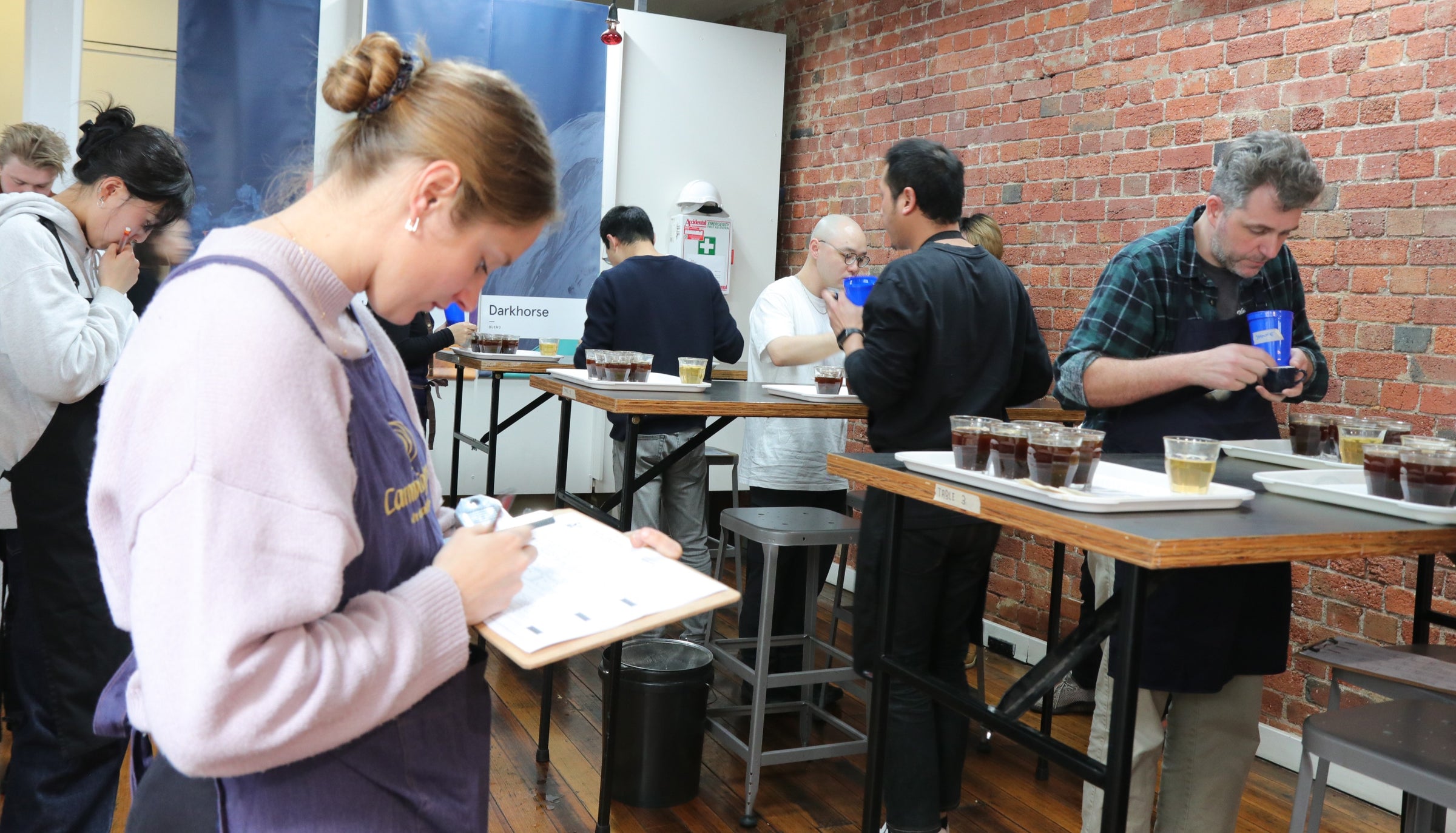If you’ve ever spoken to someone in the specialty coffee industry about the infamous Q Grader exams, chances are you’ve come across stories of a grueling week of exams, meltdowns, palate fatigue and a low first time pass rate. While it is an intense week, it is also incredibly rewarding, educational, and dare I say it, fun. If you’re interested in becoming a certified Q Grader, read on to see how some of our staff have prepared.
For those unfamiliar, the Q Grader course is run by the Coffee Quality Institute (CQI), who are a non-profit organization working to improve the quality of coffee and the lives of those who produce it on an international scale. The Q Grader week itself is 3 days of theory and review, followed by 3 days of 20 exams. Yep, you read that right, 20 exams. This may sound daunting, but if you’re passionate about specialty coffee and want to improve your palate and sensory skills, it is very well worth it.
Here are some ways you can help prepare yourself (and your palate) for an intense week of tasting!
1. Cupping
Cupping is the process of tasting and grading roasted coffee. To prepare, if you can practice cupping and get familiar with the process, this will make the week a lot less stressful. Keep an eye out in your area for local roasters that hold public cuppings. These are a great way to learn while also working with a multitude of coffees from different origins. Five Senses holds regular cuppings at each of our Barista Academies in Perth, Melbourne and Sydney. Keep an eye on our website and social media to find out when the next one is!
2. Sensory Practice
When evaluating coffee, it’s important to be able to identify sweetness, saltiness, sourness and bitterness. In the sensory exams, participants are asked to identify different flavour solutions in water, and luckily you can set up some practices for this with 4 everyday pantry items: filtered water, sugar, salt and citric acid. For recipes and to read more about how to calibrate your palate for maximum sensory performance, read our article here.
3. Olfactory
Olfactory refers to your sense of smell. This is tested during Q in the form of the Le Nez Du Café kit. This is a series of vials infused with the 36 aromas found in coffee, divided into 4 groups: Enzymatic, Sugar Browning, Aromatic Taints and Dry Distillation. My best tip if you can’t get a hold of a kit for practice? Research and get familiar with what aromas belong to which group, for example Lemon belongs in Enzymatic but Leather belongs in Aromatic Taints. This will help you understand what you are smelling and will help with association of the aroma.

Other exams include Green Grading, Roast Identification, Identifying Acids and General Knowledge. These are a little trickier to practice if you don’t have access to roast samples, green coffee or different acid samples, however you will spend the first half of the week practicing with and learning from your instructor, so be sure to stay engaged!
Overall, any week that involves an onslaught of information and an overload of the senses is going to be tough, but we’re lucky enough to have a bunch of Five Senses staff accept the challenge! Here are some of our top tips:
“What helped me was making sure I knew that cupping form backwards and also access to the LeNez Kits. But really, the week, whilst so much fun, can only be described as gruelling. Get lot's of sleep, eat well, drink lot's of water, take as many notes as you are able - the amount of information is huge.” - Krysty Prasolik
“My hot tip: Preparation is key.
It is a potential overload of information and pressure; get your support network on guard if you need it. Get some extra sleep in the bank and try build your caffeine tolerance beforehand. Cup enough to feel comfortable/build muscle memory (you have to hold a lot of things). Cup/taste/drink an array of coffees and different flavours to build your gustatory memory and lexicon.” – Nicole Novak
“Empty your spit cup regularly. Spilling it would be quite embarrassing” – Renae Murray (not speaking from experience…)
“For me: familiar yourself with the whole cupping protocol and cup with people who know how to fill the scoresheet'’ – Emeline Giroux
“Get an understanding of what is involved in each test. This link (https://www.coffeestrategies.com/q-grader/q-grader-course/) put together by Andrew Hetzel is super helpful”. – Matt Slater
“Have fun and make friends with the people in your class! You’re in a room filled with infinite coffee knowledge and experience so you can learn so much from the people around you. And, at the very least, you can support encourage each other when the nerves start to set in.” – Sophie Murchie






